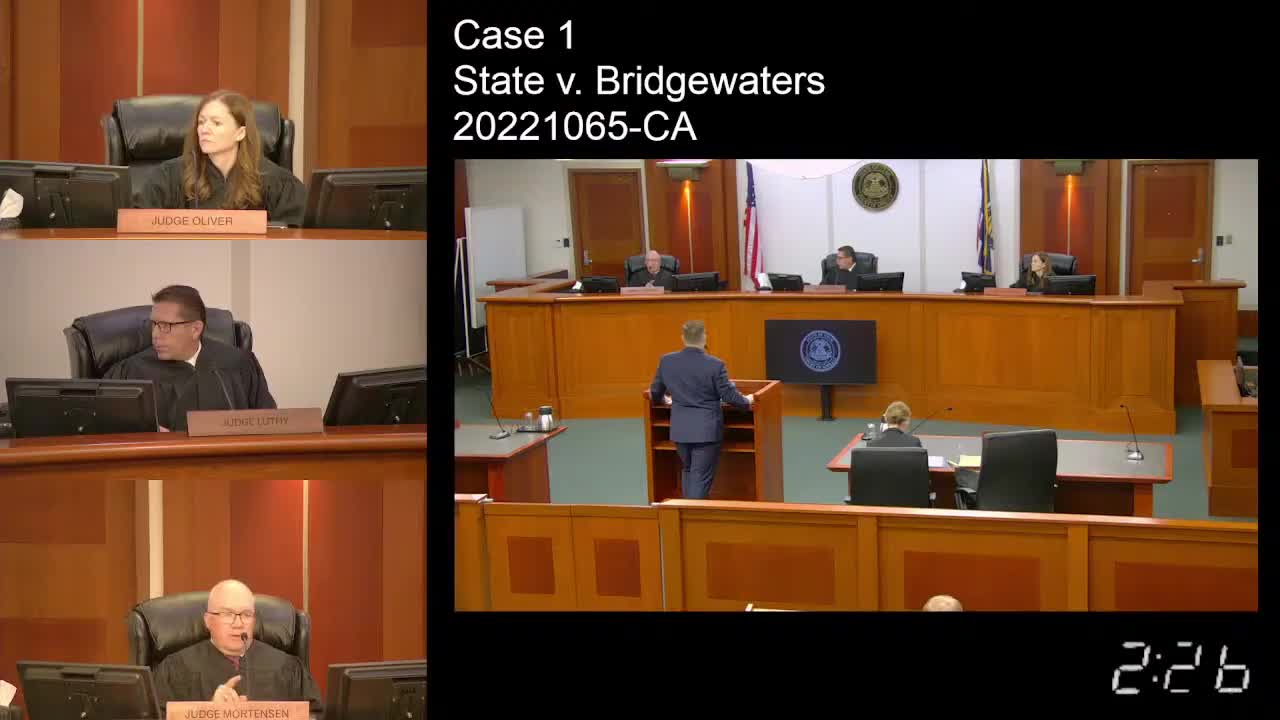Court Reviews Bridgewater's Pro Se Representation Rights During Trial Delays
August 07, 2025 | Utah Court of Appeals Live Stream, Utah Appellate Court, Utah Judicial Branch, Utah
Thanks to Excel Chiropractic and Scribe from Workplace AI , all articles about Utah are free for you to enjoy throughout 2025!

This article was created by AI using a video recording of the meeting. It summarizes the key points discussed, but for full details and context, please refer to the video of the full meeting. Link to Full Meeting
The discussion began with a focus on the nuances of legal waivers. Defense attorney Mr. Dembe argued passionately that Mr. Bridgewater had consistently expressed a desire to represent himself, emphasizing that the court had previously allowed him to do so without issuing a warning about the potential consequences of his choice. He pointed out that Mr. Bridgewater had been ready for trial five months in advance, contrasting this with a precedent set by the United States Supreme Court in the Feretta case, where a defendant's right to self-representation was upheld.
Mr. Dembe contended that the trial court's decision to revoke Mr. Bridgewater's right to self-representation was unjustified, particularly since it had previously appointed standby counsel. He insisted that the court should have provided a clear warning about the implications of Mr. Bridgewater's actions, which would have allowed him to make an informed decision about his defense.
On the opposing side, state attorney Ms. Wheeler countered that Mr. Bridgewater's history of fluctuating decisions regarding legal representation undermined his claim. She argued that unlike the defendant in Feretta, who had made a clear and unequivocal waiver of his right to counsel, Mr. Bridgewater had not demonstrated the same level of commitment to self-representation. Instead, he had oscillated between wanting to hire counsel, seeking appointed representation, and expressing a desire to represent himself.
As the arguments unfolded, the court grappled with the critical question of how to balance a defendant's rights with the need for judicial efficiency. The judges appeared keenly aware of the implications of their decision, not only for Mr. Bridgewater but also for the broader legal landscape regarding self-representation.
The session concluded with Mr. Dembe reserving time for rebuttal, leaving the courtroom in anticipation of the judges' deliberations. The outcome of this case could set a significant precedent for how courts handle the delicate interplay between a defendant's rights and the judicial process, underscoring the importance of clear communication and understanding in the courtroom. As the legal community watches closely, the implications of this case may resonate far beyond the walls of the Utah Court of Appeals.
Converted from 20221065- State v. Bridgewaters audio file meeting on August 07, 2025
Link to Full Meeting
Comments
View full meeting
This article is based on a recent meeting—watch the full video and explore the complete transcript for deeper insights into the discussion.
View full meeting

